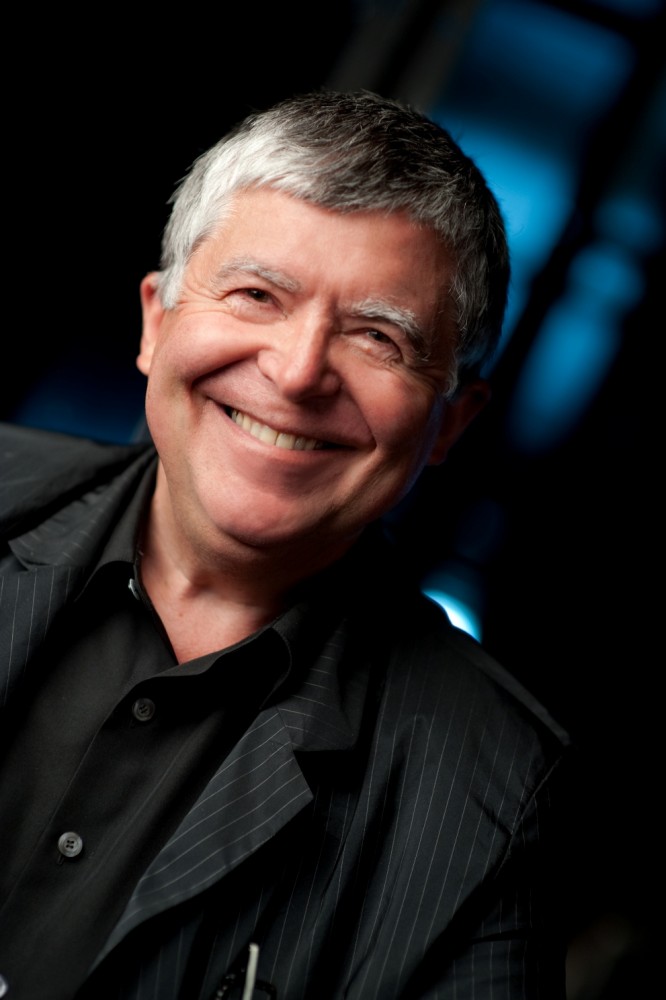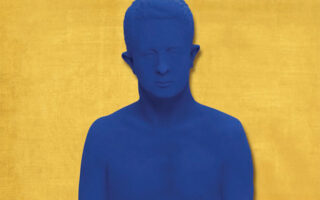Jean-Luc Choplin: Bringing Broadway to Paris

Standing ovation. As the curtain closes, a long roar of cheering and applause rises from the 2,000 spectators, including families and scores of teenagers. Brilliantly crafted and performed, director Lee Blakeley’s production of Stephen Sondheim’s Sweeney Todd at the Théâtre du Châtelet is one of the cultural highlights of Paris this spring. And it’s one more success for director Jean-Luc Choplin. When he took the helm at the Théâtre du Châtelet in 2006, Choplin vowed to lighten up the venerable institution, first opened in 1862 and operated by the City of Paris since 1979. “I told the mayor of Paris, Bertrand Delanoë, I wanted to go back to the Châtelet of the beginning of the 20th century,” says Choplin, “the days when it welcomed Diaghilev’s Ballets Russes, Mahler’s Second Symphony and Stravinsky’s Firebird.”
And in spirit, so he has, bringing to the Châtelet stage a series of brilliant, unexpected shows including an opera in Chinese by the pop band Gorillaz, a gospel choir from Soweto singing Mozart’s Magic Flute, and composer Howard Shore’s opera version of David Cronenberg’s horror movie The Fly, conducted by Placido Domingo.
But Choplin, a huge fan of US culture, has also managed to bring classic Broadway musicals to Paris—something no French theater director before him ever achieved. “I like musicals because you can link to the story; it’s not just a celebration of the voice,” says Choplin. “Before, we had the opérette, a genre developed and improved on by the Americans with great musicals.” This extremely risky venture proved to be a stunning success, with productions of My Fair Lady, The Sound of Music, West Side Story and A Little Night Music, the first time a Stephen Sondheim musical had ever been performed in France. “The first two years, I definitely met with some suspicion among the regular patrons,” he adds. “Every time you use the word ‘culture,’ there is likely to be immense misunderstanding between France and the United States. But there have been many conversions!”
Staging these musicals in English was a personal commitment for Choplin. “Nobody ever thought it was wrong to see operas in a foreign language with subtitles—why would it be wrong with musicals? Paris audiences understood the need to hear the works in their original language to retain the quality. French uses 30 percent more words than English does to say the same thing, so if you try to use a translated text in a musical score, you could very easily lose part of the original meaning.”
Franco-American actress and dancer Leslie Caron, celebrated for her film roles in An American in Paris and Gigi, starred in the Châtelet’s A Little Night Music along with Lambert Wilson and Greta Scacchi. She found Choplin “a really open-minded man, who really admires musicals,” she says. “And it was truly courageous for him to bring Stephen Sondheim onto the Parisian scene. No one dared to do it before, that’s how skittish the French are about musicals! It was also a real challenge to stage the shows in English.” Impressed by the exceptional quality of the productions, Caron hopes to work with him again. “I’ve already told him I’m ready! It would be a real honor for me.”
Of course, Choplin’s Châtelet program is not limited to Broadway musicals—the offerings range from operas to dance shows, family events and jazz concerts. “What matters to me is the quality of the experience. I don’t want people to be oppressed by this beautiful theater, but au contraire, to feel at home here. Sometimes when you go to the Opéra Garnier you feel as if you’re visiting Versailles. As for the Bastille, it’s
just too big. Here, there is still a kind of intimacy, something essential to a great evening.”
Little rats, big mouse
This unusual perspective on culture might be linked to his working-class roots. Born and raised in Châtenay-Malabry, a Paris suburb, Jean-Luc Choplin wasn’t necessarily destined for great things. But his discovery of music, when he was nine years old, set him on the way. “I had four brothers and sisters, and being the only one interested in music set me apart, which I enjoyed. I also liked being surrounded by many friends in an orchestra. Playing the flute was like attaining a sort of spiritual transcendence of the self. That may be why I liked playing Bach so much, for example. It’s the language of angels.”
A great admirer of Berlioz’s Symphonie Fantastique but also of the Grateful Dead and Johnny Hallyday, Choplin headed the music festival at
Saint-Maximin-La-Sainte-Baume, in Provence, in the early 1970s, befriending contemporary artists such as John Cage and Robert Wilson.
Later he was appointed director of the dance department at the Opéra Garnier, where he worked with Rudolf Nureyev. But Choplin made a surprising move in 1989 by taking a job chez Walt Disney, first at Disneyland Paris, then in Los Angeles to commission US composers. “I went from the petits rats to the big mouse!” Choplin jokes. (Very young students at the Paris Opera ballet school are affectionately known as petits rats, or little rats.) “What I learned from Michael Eisner was the audacity to ‘think big,’ to exceed my own limits,” he says of the Disney CEO at the time. “He also taught me attentiveness to the audience.”
It is a fitting reward to see the Théâtre du Châtelet become the premier stage venue in the capital. Ticket sales hit 308,000 this season, up from about 160,000 when Choplin arrived. During the same period, the average age of the audience has gone down by ten years. “I want to build a place where you can be intellectually challenged and highly entertained at the same time,” says the self-described “explorer”. As for his famed venue: “The Place du Châtelet is the very heart of Paris, and I’d like to re-create, maybe not Times Square, but why not Lincoln Center? With the Théâtre de la Ville right across from us, we might even imagine this square becoming a pedestrian plaza. You know, I think of us as the Eiffel Tower of culture in Paris.”
The theater’s next season, which opens in September, will include surprising versions of the opera Nixon in China by John Adams and Claudio
Monteverdi’s wonderful 17th-century The Coronation of Poppea—it will be transformed into Pop’pea—starring the pop-rock singer Carl Barât (formerly of The Libertines, with Pete Doherty, and Dirty Pretty Things) as Nero. But Choplin is restless, and scheming to bring to the stage a mysterious classic novel he won’t name. “My problem is that I can’t find the right composer. Unfortunately, there are only one or two Bernsteins every century. But I’ll have no regrets if I fail. I only have desires and obstacles to overcome. But regrets, never!”
Originally published in the June 2011 issue of France Today
Share to: Facebook Twitter LinkedIn Email
Leave a reply
Your email address will not be published. Required fields are marked *



